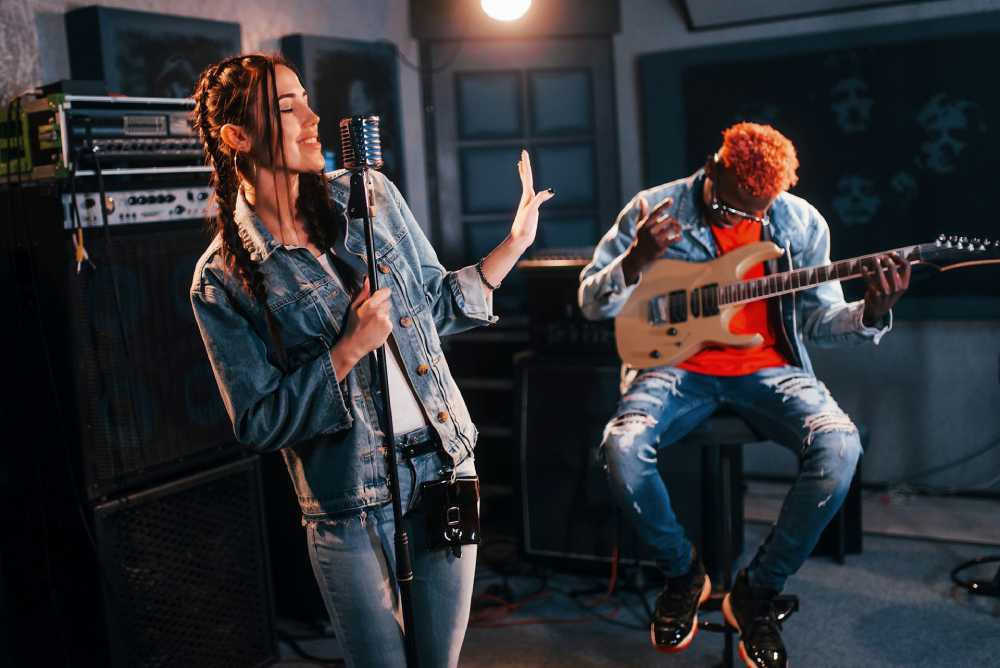The Power of Personal Branding in Shaping Music Careers
Once exclusive to business moguls and entrepreneurs, personal branding has permeated the music industry, becoming an indispensable element for today’s artists. It’s an artist’s unique signature throughout their career, creating an authentic connection with the audience. One such case is the musician Dan Avidan, whose career exemplifies how personal branding can significantly amplify an artist’s impact.
With the advent of the internet and social media, personal branding for artists has dramatically transformed. Artists have more control over their image and how they’re perceived than ever before, which can be a powerful vehicle for success when well-aligned with their artistry and values.
The musician’s story, persona, and public image must be carefully curated to form an identity that resonates with fans and stands apart from the competition.
Compelling personal branding can build a loyal fanbase and open doors for collaborations, sponsorships, and media opportunities. Moreover, it means artists can ensure longevity in an industry where public tastes frequently change and new talent continuously emerges.
Crafting a Unique Identity
Developing a memorable personal brand involves many factors, including style, musical influence, and public persona. Establishing a unique identity is not about donning a catchy gimmick; it’s an authentic expression of the artist’s personal narrative, convictions, and creative vision. Successful artists know their brand must reflect their true selves, allowing them to resonate with their audience.
Storytelling transcends simple content sharing; it’s a strategic approach that personalizes an artist’s brand. A vivid and authentic story can spur a strong emotional response from the audience, making the music experience more intimate and impactful. This story-driven engagement creates memorable experiences that fans eagerly share, broadening the artist’s reach beyond their existing fan base.
Digital Platforms and Brand Development
Social media has revolutionized the music industry, empowering artists to build their brand in the digital space actively. Platforms such as Instagram, YouTube, and TikTok not only allow musicians to share their work and behind-the-scenes glimpses of their lives but also to carve out a niche for their brand. Each post, tweet, or video can be a strategically placed pixel in the larger picture of an artist’s brand mosaic.
Leveraging these platforms effectively can significantly enhance an artist’s brand recognition. The consistent presentation of an artist’s ethos, aesthetically pleasing visuals, and engagement with followers construct a narrative that supplements their music and allows for a more profound connection with the audience.
Influencing Fan Engagement through Branding
A musician’s brand is a powerful tool for cultivating an engaged and passionate fan community. Creating a dialogue, launching interactive campaigns, and including fans in the creative process can induce a sense of belonging and loyalty.
Engaged fans are more than just consumers; they become advocates and play a vital role in an artist’s success. For example, exclusive fan events or social media shout-outs are simple yet powerful ways to build relationships and give back to the community.
High levels of fan engagement are reflected in various facets of an artist’s career, from concert attendance and merchandise sales to social media influence. They should be considered as crucial indicators of a personal brand’s strength.
Navigating Challenges in Brand Consistency
While brand consistency is crucial for recognition and trust-building, staying true to an established identity while evolving as an artist and individual is one of the most significant challenges in personal branding.
Musicians must find the delicate balance between their evolution and the expectations set by their brand. A dynamic yet coherent brand is more relatable and can withstand the test of time through various phases of an artist’s career.
Brand consistency does not equate to stagnation. It means that as artists explore new genres or address different themes in their music, they find innovative ways to integrate these changes without alienating their core audience. Consistency in core values and artistic integrity helps fans follow the journey despite twists and turns.
Collaborations and Brand Synergy
Collaborations between artists can extend personal branding, providing mutual benefits and cross-promotion opportunities.
The strategic alignment with collaborators who embody a similar ethos or appeal to a complementary audience can amplify an artist’s brand. Strengthening networks through collaborations can also expose musicians to diverse ideas and influences, enriching their brand and helping to maintain its relevance.
Looking Ahead: The Future of Music Branding
Observing the trajectory of personal branding in the music industry, we can anticipate future trends that will further shape how artists present themselves to the world.
Advancements in augmented reality, virtual reality, and even AI-generated content offer new frontiers for artists to expand their brands. These technologies could revolutionize how fans experience music, bridging the gap between artists and audiences like never before and enabling deeper interaction and storytelling.




